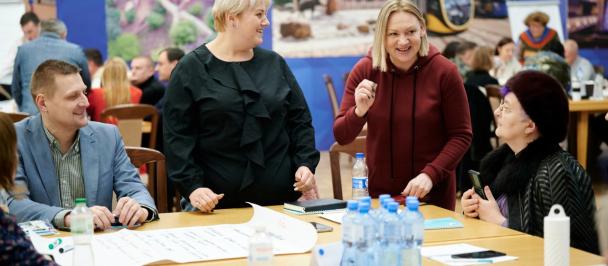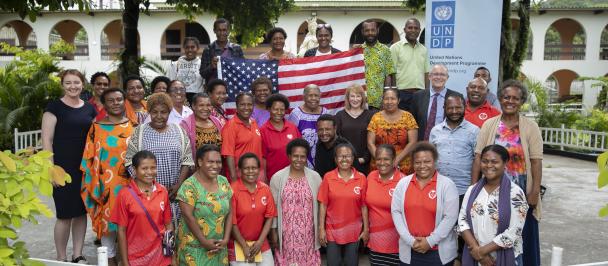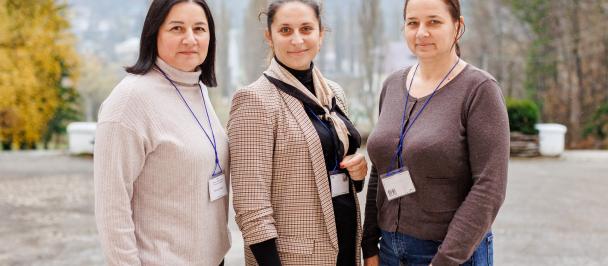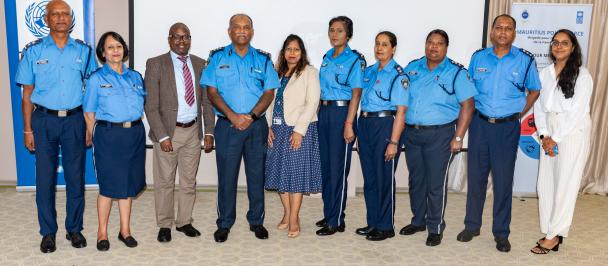A powerful Sande Society traditional leader turns anti-FGM Advocate
December 8, 2023
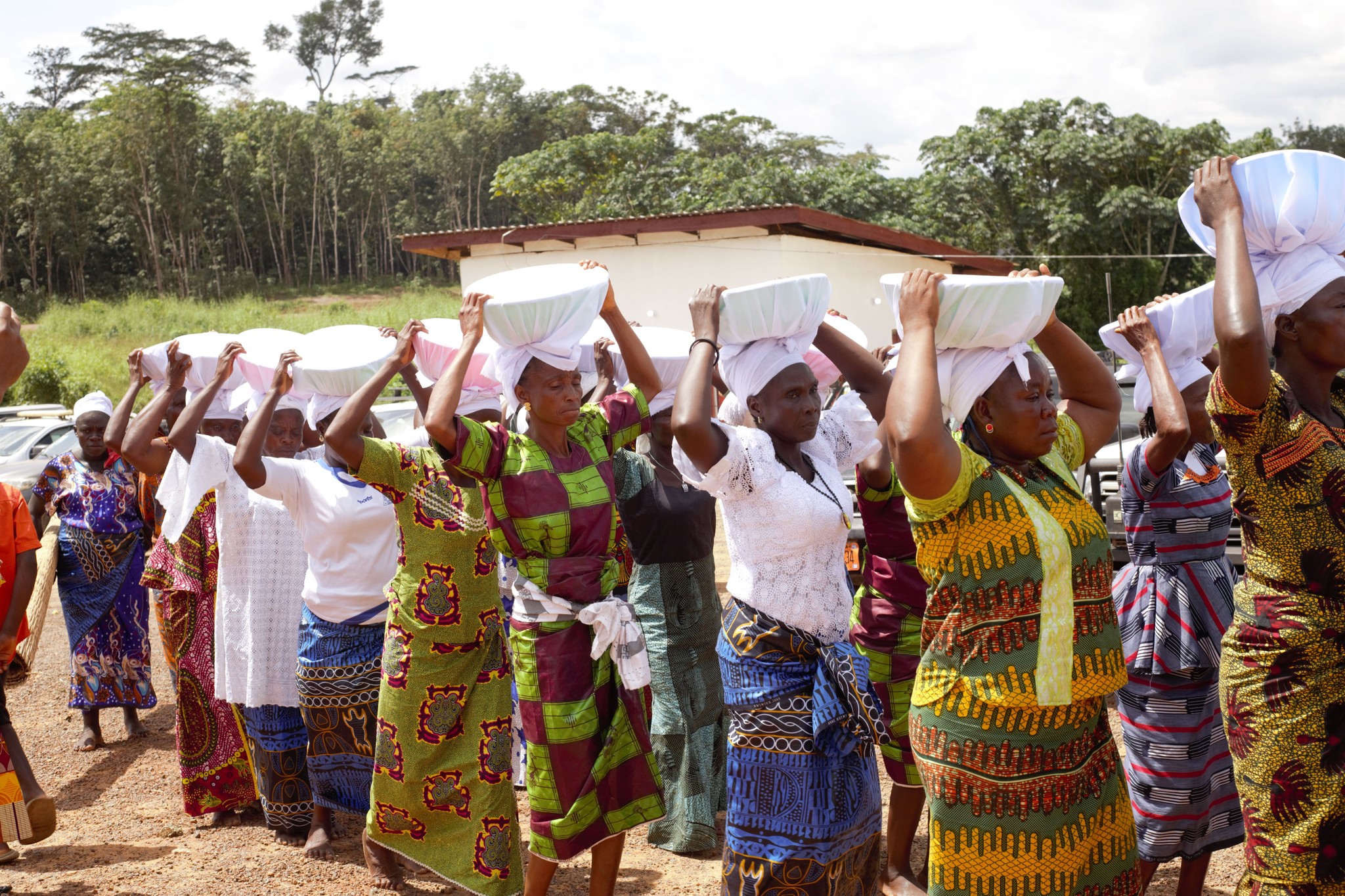
Traditional leaders who have agreed to end FGM in Liberia
Mary was the third most powerful traditional woman in the Sande Society, which is a traditional school that initiates young girls and women into adulthood by performing traditional rituals including female genital mutilation (FGM). She lives in Kpaytuo Town in Nimba County, Northern Liberia. She inherited the rank from her grandmother and has practiced FGM for over 30 years.
As the third most powerful woman in her Chiefdom, the 55-year-old mother of seven was responsible for mobilizing adolescent girls for initiation and aided her contemporaries in performing FGM rituals.
She had no idea that FGM is a violation of the fundamental human rights of women and girls. Mary was unaware of the consequences and complications associated with FGM, which include severe pain, excessive bleeding, infection, infertility, increased risk of HIV transmission, and even death.
Her behavior and attitude regarding the Sande Society initiation rites began to change with the intervention of CHESS-Liberia, a local CSO working in Nimba County that promotes access to good health and well-being of women and girls.
The organization, with support from UNDP under the EU-UN Spotlight Initiative against gender violence, launched a series of focus group discussions, community engagements, and public awareness in hotspot communities on harmful traditional practices such as FGM in a bid to eliminate all forms of violence against women and girls.
The awareness creation was used to encourage behavior change on sexual and gender-based violence (SGBV), FGM and other harmful traditional practices, and the reproductive health rights of women and girls. CHESS-Liberia also strengthened and supported rural women networks in FGM hotspot communities by mobilizing women to raise awareness of these practices, promote women’s well-being, and end SGBV.
“I was initially reluctant to participate in the awareness activities because of my status. But after two sessions that taught me about the harmful effects of FGM, I took the risks and joined the CHESS focus group discussions and FGM awareness activities,” said Mary. “It was risky for my family and me because of my rank in the Sande society.
Now, Mary works with her Sande colleagues to ensure that awareness of SGBV and FGM reaches women in rural villages and towns within her chiefdom. Mary is now a full-ranking member of the Kpaytuo rural women’s group working to reach all women and girls with anti-FGM awareness.
The entire chiefdom is astonished and in disbelief by Mary’s openness to the advocacy around the fight against SGBV and FGM her status.
“Something is wrong with Mary. We can’t believe that as a traditional Chief, she is against the traditions she once practiced. This is unbelievable because this woman had been encouraging young girls to join the Sande and always showing how powerful she was during Sande bush practices. Still, now, she is the one actively conducting house-to-house awareness on harmful traditional practices,” said a young woman who was affected by FGM.
Her presence in the Kpaytuo group has motivated many women, especially young women aged between 18 and 28 years who were her victims, to join the fight against FGM.
“The engagement of the third most powerful Sande Society traditional woman in Kpaytuo town has encouraged and motivated many women who have practiced the Sande rituals over the years to join the group network as active members raising awareness against SGBV and FGM,” said Ma Oretha one of the new members.

 Locations
Locations
